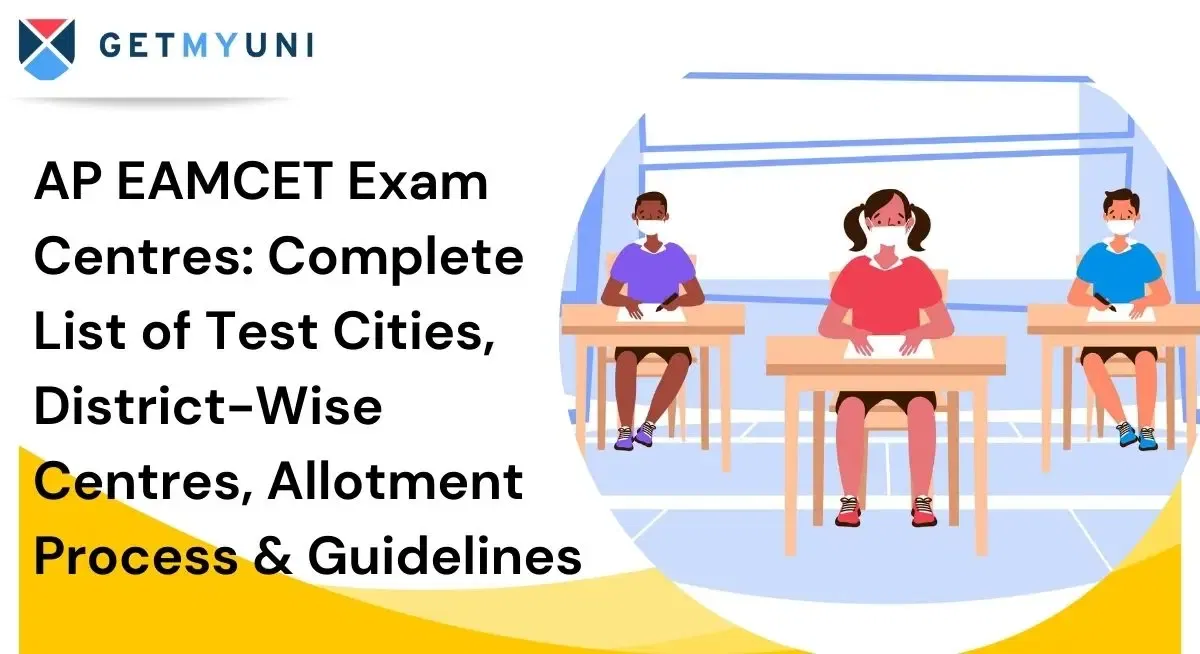GATE is considered tough at times for several reasons such as, Extensive syllabus, Conceptual depth, Time pressure, High competition along with other factors.
Is GATE tough? It’s an entrance examination for those wanting to get admission to M.E./M.Tech. institutes as well as PSU recruitment. GATE 2024 is tough, yes. The question runs in the minds of several aspirants. It’s not unreasonable to think that the GATE exam is among the most challenging exams to exist for engineering candidates in India.
However, it can be managed with the right preparation tactics. It's also not entirely accurate to say that the GATE exam is tough as a whole. Instead, the student should think of the layer-based difficulty, i.e., subjects covered, number of questions to be answered, time management, and so on.
Why is GATE Tough?
As explained above, it depends on the layer that the students are focussing on. Even though the claim is made that the GATE is hard, some candidates say otherwise. We’ve created a list of the most common points made by candidates that detail what makes GATE as tough as it is in general.
Also Check: GATE Admit Card 2024
1. Wide Syllabus
The primary aspect that most people look at when they talk about the GATE exam is the subjects it covers. Questions, paper patterns, previous papers, topics covered, and so on play a large role in GATE’s difficulty, and it is understandable where this frustration comes from.
GATE was created with a set direction that it must challenge the candidate’s 4-year accumulated knowledge of Engineering that they’ve obtained as an Engineering student. This is definitely a challenge to crack, one fitting for those excited and nervous about pushing their limits to become an engineer.
2. Tight Time Management
Time management is the second most important aspect in any exam, let alone in GATE. If you do not coordinate with yourself to finish all the appropriate questions within the allotted time, then your likelihood of gaining entrance to an institute in the engineering field drops.
Time management also acts as a reflection of the candidate’s fervour for self-discipline, self-organization, and self-management. Companies will want those who can hold their shoulders up high in fast-paced environments without breaking a sweat.
Also Check: GATE Exam Centres 2024
3. High Competition
The exam comprises thousands of candidates from all across the country, which builds up the number of people to compete against to win a desired position in the rankings. The higher the rankings, the higher the chances are to obtain a seat in an institute of the student's choice.
As of GATE 2020, almost 7 lakh candidates appeared for the examinations, so you could only imagine what a single candidate would’ve felt.
The more one thinks about it, the scarier it does feel. It's unsurprising and understandable to see candidates feeling so much pressure. Even if you nailed the first two aspects, winning against the majority of the competition is always dependent on how you’ve made those aspects synchronise with each other.
4. Demanding Opportunities
Opportunities are understandably far from a dime a dozen when we’re talking about engineering exams providing them. Still, it doesn’t mean that it’s something for everyone.
Unless the candidates extremely sure that they want to break through the academic and professional ceiling to get into their desired college. It may neither align with the vision the candidates have for their careers. So it’s important to factor in the kind of opportunities that they’d like to seize.
Passing GATE — not acing it — is in and of itself a mammoth accomplishment. It gives the students so much leeway in obtaining opportunities that non-GATE candidates can't get until years later.
Also Check: Benefits of Writing GATE Exam
The Myths Surrounding GATE
Now that we know why GATE is so difficult, it’s time we cut down some misconceptions about the exams. It’s normal to see people swatting out a potential candidate’s wishes to do the exams by telling them things that range from not necessarily being true to being absolutely false.
It’s not to say that their suggestions or advice are something to dismiss either, since everyone’s experiences are different, but the shade that most people paint on the GATE exam is much darker than how they should actually be. So let’s clear the air in that regard.
Also Check: What is a Good Score in GATE?
1. GATE exam questions are too difficult
A rather common complaint that most would have about the GATE exam is that the questions are too difficult. But the issue with this statement is that it can be applied to any subject, let alone engineering. It’s an understandable opinion, but it’s also subjective.
GATE exams don’t stop at testing your knowledge of engineering. It also deals with testing your problem-solving skills, which includes solving problems that you would largely find in a professional environment.
These problems aren’t typically as easy to figure out, which is the whole point of this exam.
In essence, holding a strong foundation of the basics, and using it to look at problems from a different perspective will substantially help you. The exam merely acts as a handicap to ready you for what’s to come.
Understandably, it’s difficult to do this when you have other factors looming over your head, so it depends on how you are handling them.
2. Answer all the questions in the GATE exam
Another suggestion given by those who have written the GATE exam before is that candidates must answer every question in the paper. This is false.
Although GATE does cover an extensive number of topics, you don’t have to answer all the questions provided. GATE exam is, in the sense, created with modularity in mind. You may either specialize in one section or the other.
Either way would still net you enough marks to ensure that you could be guaranteed a seat in at least one of the prestigious institutions that offer M.E./M.Tech courses.
Also Check: M.Tech Admissions without GATE
3. You must learn the entire GATE syllabus
This is another suggestion given by many who most likely did not have access to information so easily. Fortunately for you, this statement about learning the entire syllabus is false. Thankfully, GATE posts any updates regarding their syllabus on their website, which you may check out should you need to know what parts of the syllabus are prioritized.
Based on the information you obtain, it is up to you to either learn the entire syllabus or learn whichever parts that GATE themselves publicize to be important.
We highly recommend doing the latter because it helps you with many other factors, such as time management, general clarity, and peace of mind. This also echoes what we’ve talked about above: you don’t have to answer every question to the letter.
4. GATE has too much competition
This is a mixed response. On one hand, it is true that the higher your competition, the higher your challenges will be to rank yourself up. On the other, the scoring system is structured to make it feel fair to everyone. Simultaneously, you must think about what you’re trying to achieve before you analyze your competition.
If you plan to be one of the toppers, then you’re likely competing against approximately 4,000 - 5,000 hard-working students, not the lakhs of students that you would take to face value. So don’t feel discouraged!
Also Check: M.Tech without GATE in Delhi
5. Only IIT and NIT students are GATE toppers
Much like other things, if you don’t put the effort into your actions, then you likely will not achieve the results. It’s been reported that there have been successful cases of low-tier students obtaining extremely high ranks in the examinations. This proves the statement false.
Even if you were to fail your graduation, you’ll still look good on an employer’s books if you manage to score in the top 10 rankings. If your contact group does not consist of GATE toppers or anyone with success in the GATE examination, then it’s high time you meet some and incorporate their knowledge with your own.
6. Study for GATE during college
This has likely to do with the assumption that rote learning for years will help you retain all the knowledge you need to ace the GATE exam. There are two sides to this.
One side suggests that you should prepare right when you enter college. It’s a choice that must be made carefully, so ensure that you do want to go after placements in top institutes and engineering companies.
This, however, does not guarantee that you’ll be any better than any candidate you know who has been preparing for GATE after they finished college. Although years of experience do apply, the quality of the effort you put in and the sources you use matter as well. It’s not a big benefit, but depending on how you see it, it may very well be worth taking.
The other side suggests that you work on the GATE exam after you finish college. This is also a doable choice. The disadvantage you have when doing this is that you may not retain as much knowledge as you would if you began preparing whilst in college.
Again, this is not etched in stone, and so it depends entirely on the person.
Either option still requires years of academic preparation, training, and experience from you. Essentially, everything about this is a gamble; you get a few extra years of preparation to net yourself a small result that may or may not be a game-changer.
Also Check: GATE Exam Attempt Limit
7. Skip anything that’s non-technical
Non-technical questions in the GATE exam are part of the problem-solving process for engineers in work environments. Failure to do this would stagnate their role there. These questions also carry a large number of marks that you could use to substitute any other questions you would be unable to either partially or fully answer.
The non-technical section is potentially a game-changer for when you feel too suffocated by the technical aspects of engineering. Never accept any suggestion or advice that talks about skipping over non-technical aspects.
8. Studying in groups is better for the GATE exam
This works differently for many people. Some like to study without the need for help or constant supervision for the exams. Others would like to group up and share conversations, thought processes, and their progression, and keep each other in check. This entirely depends on not only the mindset of the student but also the willingness to commit to the task at hand.
Groups are notorious for straying away from the intended path, which is to earn good scores in their exams. If you’ve ever felt that studying in groups boosted your progress, then definitely go for it. One approach isn’t better than the other, rendering this point subjective.
Also Check: PSU Recruitment without GATE
9. You have to take up GATE coaching
GATE coaching is not mandatory at all. Let’s say that you find yourself in one of the following scenarios:
- You feel as if you’re growing weak with the fundamentals, or you’re not sure how to retain them
- You’re new to understanding the fundamentals
- You’re dealing with a problem that involves using basic concepts, but you can’t figure it out.
If any of these scenarios ring true to your experience, then coaching can help. Coaching should be considered on a case-by-case basis. Most take it up as part of their study routine, which is also acceptable.
However, coaching is meant to break down your overwhelming misunderstanding of the subject to obtain the answers you’re looking for. It isn’t meant to be a reflection of your usual study process. So, there’s no need to take up coaching if you don’t require professional help with it.
10. Absorb as many books on the GATE syllabus as possible
This is entirely false. Your efforts will shine in the exam as long as you use efficient, quality resources. By absorbing whatever information on the syllabus would come your way, you will not only feel overwhelmed by the amount of material presented, but you will also mix up the information that may or may not be correct.
In the end, the students will debate with themselves on what resource is better to fall back on, which is a big waste of time. It’s important to research before you go ahead and decide which resources you’d use to prepare for the GATE exam.
Read More: GATE 2024 Books










